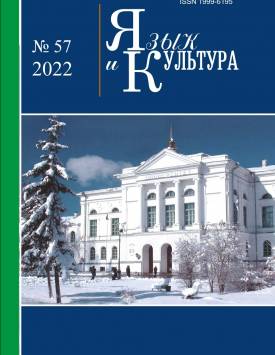Application prospects of modular training pedagogical technology
The article discusses practically oriented examples of the introduction of a modular curriculum in English in a specialized educational center of a natural science profile. The author assumes that the need to use modular technology is objectively due to the increasing demands on school graduates. An attempt has been made to find out how effective a modular approach is in teaching, performance and motivation of students and to decide whether the modular approach is more productive now than traditional methods of teaching high school students. An analysis of studies based on a literature review, provides the historical development of modular learning in general. Researchers view modular technology as content divided into modules studied separately. The module, formulated as a unit of the education system, is a set of learning opportunities organized around a clearly defined topic that contains learning elements, specific goals, training activities, self-assessment and evaluation using measurement criteria. Education is an area of activity that gives schoolchildren the opportunity to learn how to use modern technologies in the learning process and make the choice of a serious future profession choice. In the current context, there is a need for a modular course structure based on a systematic approach in the school system. The main reason for the growing interest in a modular system approach is that modern school education does not fully meet the needs of the individual and society in terms of social and personal identity, future professional flexibility. Existing curricula do not provide individual learning paths for each student in a flexible educational structure, taking into account their interests, needs and characteristics. One of the most effective technologies for teaching foreign languages is a modular approach. Teachers should pay more attention to the authenticity of language learning in school education. The use of authentic materials in the educational context to develop educational materials motivates students. Such texts are more interesting to students, contain relevant profile information, and are a greater incentive for study than artificial or inauthentic materials. One of the main problems in the traditional education system is the entrenched concept of a teacher as a translator of knowledge. The modern educational paradigm depends on the requirements of the modern world, emphasizes the needs and preferences of students, cooperation between peers and teachers. Based on its rich history, SESC NSU is engaged in the issues of teaching English to future university students, young scientists who will be able to cope effectively with the problems of working in the information society. The development of the key competencies of the 21st century, namely creativity, critical thinking, communication and cooperation can be facilitated by both specially designed tasks and organized activities in their implementation. This article highlights the results of the experimental preparation of modular English courses developed on the educational platforms Moodle, JUMLA and Google Classroom. Using course materials, teachers have the opportunity to make decisions about the consistency of topics and pay special attention to content in accordance with the individual needs, interests and abilities of senior schoolchildren. The study conducted by the author was attended by high school students of the Specialized Educational Scientific Center of NSU of a natural science profile. Control and pilot teams were organized from these senior schoolchildren. Classes in the control group were carried out according to the traditional form of foreign language instruction using Spotlight and Starlight course books. Foreign language classes in the experimental group of students were conducted using modular courses developed by teachers of the department so that students could develop communication skills in basic activities in English and meet individual profile students' paths. The experimental educational process was built on combination of traditional and e-learning technologies, a modern form of blended learning. The educational process with this type of training combined synchronous activities (face-to-face learning) with asynchronous - materials for independent training, performing specialized creative tasks (on-line learning). Based on the above, the author concludes that the integration of modular, and mixed education into the content of foreign-language education of high school students of a specialized school is not only potentially permissible and justified by the new requirements of the Educational Standard for school graduates, but is also logical from the point of view of a systematic-active approach aimed at developing the student's personality in active, versatile and independent cognitive activity. Modular programs have a positive impact on the EFL and CLIL classrooms, striving for effective management of the educational process, interaction of participants in the educational process, motivation and professional development of the teacher.
Keywords
educational technology, modular approach, individual approach, module, school education, foreign language teachingAuthors
| Name | Organization | |
| Barilenko Irina A. | Novosibirsk State University | parus_iren@list.ru |
References

Application prospects of modular training pedagogical technology | Yazyk i Kultura – Language and Culture. 2022. № 57. DOI: 10.17223/19996195/57/8
